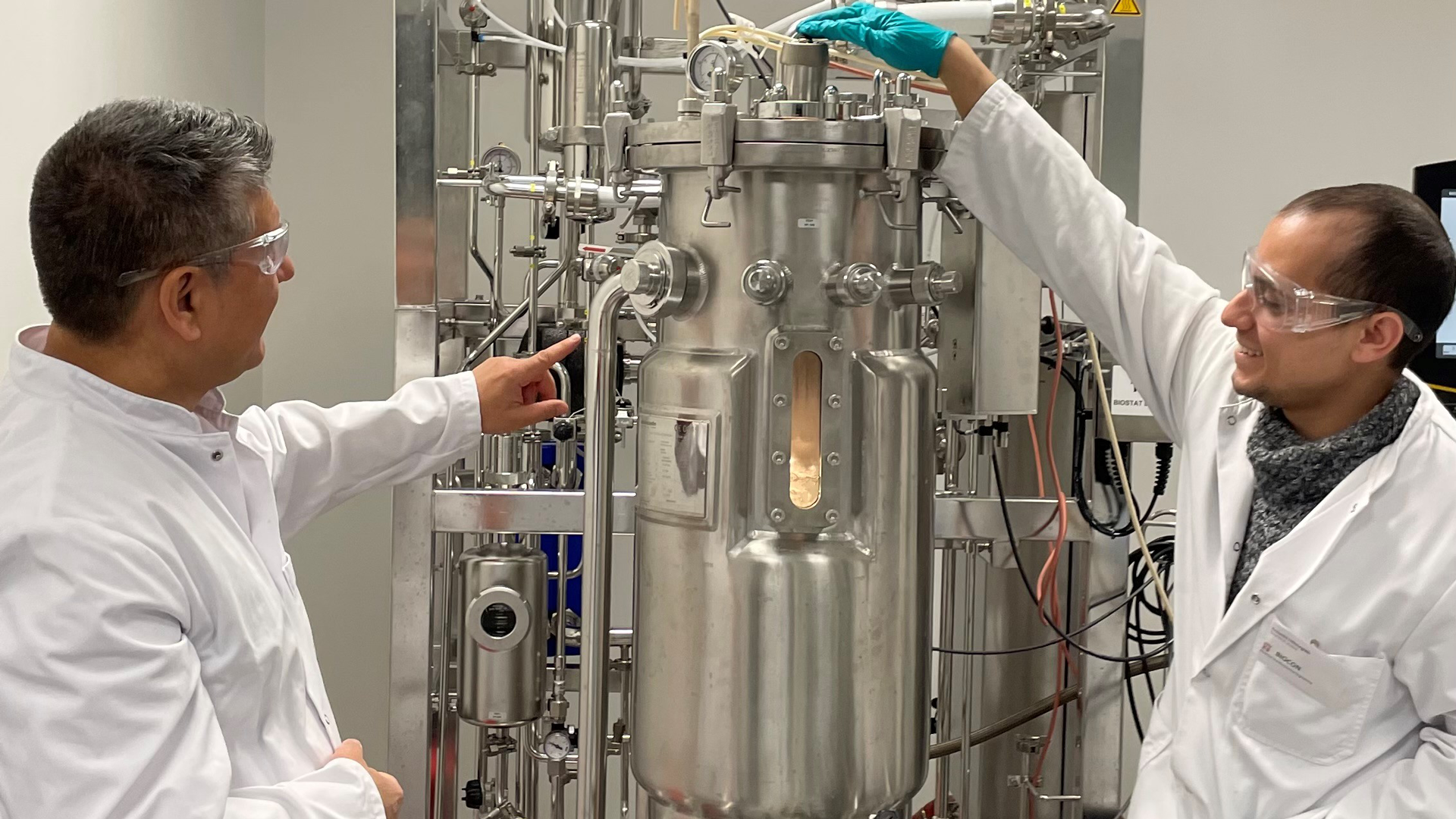Our research covers both traditional microbiology and molecular microbiology, e.g., omics technology, fermentation technologies and modeling. We focus on the processes and production concepts we develop being environmentally and techno-economically sustainable.
Our research areas can be divided into the following main categories:
Biogas
Here we, among other things, focus on new reactor configurations, process optimization, modeling, and microbiology. We combine microbial ecology and process understanding to develop new concepts. Focus areas are new microbial concepts to overcome specific process challenges in the biogas process such as ammonium inhibition, foaming problems, monitoring and control of the biogas process. In addition, CO2 methanization, syngas fermentation to biomethane or to organic acids and alcohols are in focus.
Biochemicals
We develop processes and technologies to convert biomass, such as household waste, seaweed, grass, industrial organic waste into biochemicals. Examples of this are bio-succinic acid (a platform chemical with hundreds of different uses), and for lactate and PHAs which are used for the production of various types of plastic and biodegradable plastic.
Bioproducts
We work with new concepts to valorize organic material and at the same time extract nutrients from wastewater/waste to form microbial biomass that can be used as protein-containing human food or animal feed. We have developed technologies together with companies and public authorities to produce single cell biomass (single cell protein) in the form of methylotrophic bacteria. At the same time, we extract ammonia, which we use as nitrogen input in the fermentation process.
Biofuels
In connection with the green transition, biofuels must, as far as possible, replace the conventional fossil-based fuels. The BIOCON group works with several concepts for biological production of fuels. Including methods based on electrogenesis, where CO2 is reduced using wind turbine power to produce alcohols that can be used as biofuels. In addition, the group works with syngas fermentation for the production of acids and alcohols.
Algae
Here, we work with new concepts and develop technologies where we use algae as means of action. We use algae to both clean wastewaters, but also to produce useful products, such as astaxanthin, a very valuable and useful antioxidant.
Microbial electrochemistry
We work with bioelectrochemical systems for various applications such as recovery of nutrients from wastewater, treatment of wastewater, and for electrosynthesis for the production of acids and alcohols.
